Related Research Articles
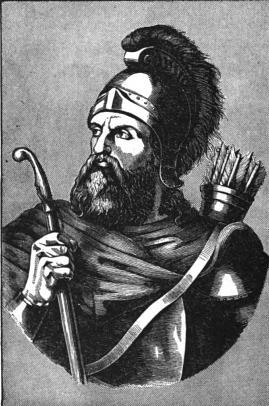
Hayk, also known as Hayk Nahapet, is the legendary patriarch and founder of the Armenian nation. His story is told in the History of Armenia attributed to the Armenian historian Movses Khorenatsi and in the Primary History traditionally attributed to Sebeos. Fragments of the legend of Hayk are also preserved in the works of other authors, as well as in Armenian folk tradition.
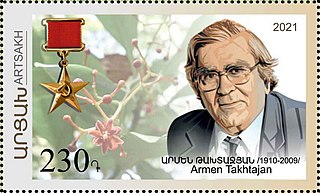
Armen Leonovich Takhtajan or Takhtajian, was a Soviet-Armenian botanist, one of the most important figures in 20th century plant evolution and systematics and biogeography. His other interests included morphology of flowering plants, paleobotany, and the flora of the Caucasus. He was one of the most influential taxonomists of the latter twentieth century.
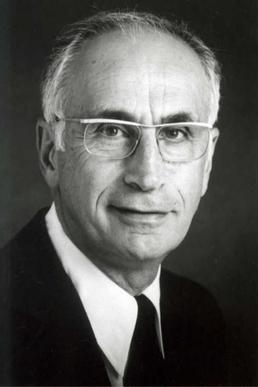
Armen Albert Alchian was an American economist who made major contributions to microeconomic theory and the theory of the firm. He spent almost his entire career at the University of California, Los Angeles (UCLA), and is credited with turning its economics department into one of the country's best. He is also known as one of the founders of new institutional economics, and widely acknowledged for his work on property rights.

The culture of Armenia encompasses many elements that are based on the geography, literature, architecture, dance, and music of the Armenian people. Armenia is a majority Christian country in the Caucasus.

Armenian mythology originated in ancient Indo-European traditions, specifically Proto-Armenian, and gradually incorporated Hurro-Urartian, Mesopotamian, Iranian, and Greek beliefs and deities.

Armen Borisi Dzhigarkhanyan was a Soviet, Armenian, and Russian actor.
Armen Keteyian is an American television journalist and author of 13 non-fiction books, including six New York Times bestsellers. Most recently he was the anchor and an executive producer for The Athletic. Previously he spent 12 years as a network television correspondent for CBS News where he also served as a contributing correspondent to 60 Minutes. Keteyian is an 11-time Emmy award winner.
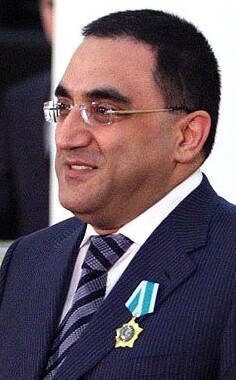
Armen Razmiki Darbinyan is an Armenian politician and university administrator who served as Prime Minister of Armenia from 1998 to 1999. In 1994, he was appointed First Vice-Chairman of the Central Bank of Armenia. In 1997, Darbinyan was appointed Armenian Minister of Finance. On April 10, 1998, he was appointed as the Prime Minister of Armenia until June 11, 1999. Since 2001, Armen Darbinyan has been rector of Russian-Armenian State University. In April 2023, Darbinyan announced that he would not stand for reelection as rector of the university, citing a lack of support from the Russian and Armenian governments.

Armen Vardani Sarkissian is an Armenian politician, physicist, investor, businessman, and computer scientist who served as the 4th president of Armenia from 2018 to 2022. He also served as Prime Minister of Armenia from 1996 to 1997. He was the first president of post-Soviet Armenia born in the former Armenian SSR.

Robert S. Corrington is an American philosopher and author of many books exploring human interpretation of the universe as well as biographies on C.S. Peirce and Wilhelm Reich. He is currently the Henry Anson Buttz Professor of Philosophical Theology at Drew University in Madison, New Jersey. Before that he was a professor at Pennsylvania State University. He is a Senior Fellow of the American Institute for Philosophical and Cultural Thought.
Armenian jazz refers to jazz music composed by Armenian musicians, sometimes combined with traditional Armenian elements.
Terrell Ward Bynum is an American philosopher, writer and editor. Bynum is currently director of the Research Center on Computing and Society at Southern Connecticut State University, where he is also a professor of philosophy, and visiting professor in the Centre for Computing and Social Responsibility in De Montfort University, Leicester, England. He is best known as a pioneer and historian in the field of computer and information ethics; for his achievements in that field, he was awarded the Barwise Prize of the American Philosophical Association, the Weizenbaum Award of the International Society for Ethics and Information Technology, and the 2011 Covey Award of the International Association for Computing and Philosophy. In addition, Bynum was the founder and longtime editor-in-chief of the philosophy journal Metaphilosophy ; a key founding figure (1974–1980) and the first executive director (1980–1982) of the American Association of Philosophy Teachers; biographer of the philosopher/ mathematician Gottlob Frege, as well as a translator of Frege's early works in logic. Bynum's most recent research and publications concern the ultimate nature of the universe and the impact of the information revolution upon philosophy.
V. Hovhannes Hagopian was an Armenian professor of Ottoman Turkish and Persian at Anatolia College in Merzifon. He was the author of Ottoman-Turkish Conversation-Grammar, published in Heidelberg in 1907.

Russian-Armenian University (RAU) is an intergovernmental university being under the joint authority of the Russian Federation and Armenia. The languages of instruction and communication at the university are Russian and Armenian.
Metaphilosophy is a peer-reviewed academic journal covering metaphilosophy. It is abstracted and indexed by PhilPapers and the Philosopher's Index.

Armen Margarian is an American entrepreneur, strategist and the CEO/co-founder/CEO of, Inc. a Berkeley Skydeck accelerator company which provides litigation support to attorneys and law firms. Formerly the CEO of NexusLab Inc. which was recognized as one of fastest growing private companies in the US in 2009 by the Inc.5000 Magazine.
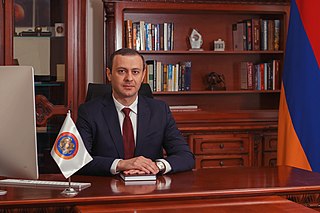
Armen Valerii Grigoryan is an Armenian politician and political scientist who is currently serving as Secretary of the Security Council of Armenia.

The Making of Modern Turkey: Nation and State in Eastern Anatolia, 1913–1950 is a book by Uğur Ümit Üngör, published by Oxford University Press in 2011. The book focuses on population politics in the transition between the late Ottoman Empire and the formation of the Republic of Turkey, especially in the Diyarbekir region.
Etiuni was the name of an early Iron Age tribal confederation in northern parts of Araxes River, roughly corresponding to the subsequent Ayrarat Province of the Kingdom of Armenia. Etiuni was frequently mentioned in the records of Urartian kings, who led numerous campaigns into Etiuni territory. It is very likely it was the "Etuna" or "Etina" which contributed to the fall of Urartu, according to Assyrian texts. Some scholars believe it had an Armenian-speaking population.
References
- ↑ "Dr. Armen Marsoobian to Speak at Fresno State University". Armenian National Committee of America. 31 August 2015. Retrieved 14 March 2021.
- ↑ "Southern Connecticut State University Faculty Directory, Armen Marsoobian". Southern Connecticut State University. Retrieved 2 December 2024.